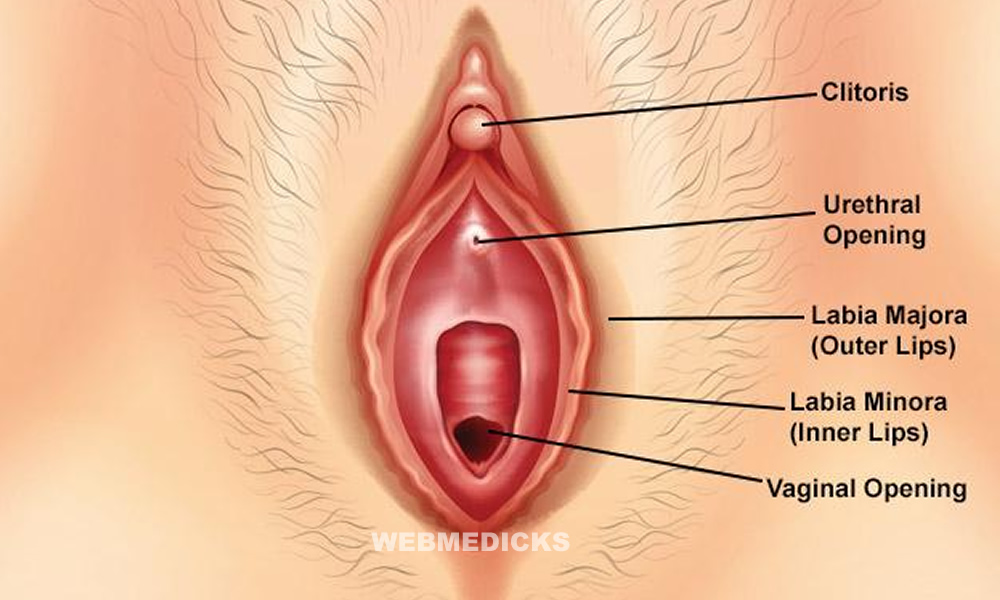Vulvodynia- Types, Prevention, Lifestyle and Home remedies

Definition
Vulvodynia is the term used to describe the condition experienced by women who have the sensation of vulval burning and soreness in the absence of any obvious skin condition or infection. The sensation of burning and soreness of the vulva can be continuous (unprovoked vulvodynia), or on light touch, e.g. from sexual intercourse or tampon use (provoked vulvodynia). Women who have unprovoked vulvodynia were formerly known as having dysaesthetic (or dysesthetic) vulvodynia where pain was felt without touch.
Types of Vulvodynia
The two major subsets of the condition: generalized vulvodynia and localized vulvodynia. Vestibulodynia is a specific kind of localized vulvodynia.
Generalized vulvodynia is characterized by pain that is spread out throughout the vulvar region. It can be present in the labia majora and/or labia minora. Sometimes it affects the clitoris, perineum, mons pubis and/or inner thighs. The pain may be constant or intermittent, and it is not necessarily initiated by touch or pressure to the vulva. The vulvar tissue may appear inflamed, but in most cases, there are no visible findings.
Localized vulvodynia is more common and the pain is at only one site, such as the vestibule. Women with vestibulodynia have pain when touch or pressure is applied to the vestibule ( the area surrounding the opening of the vagina). Women may experience pain with intercourse, tampon insertion, gynecologic exam, bicycle riding, horseback or motorcycle riding, and wearing tight clothing, such as jeans. Most often, the vestibule of women with VVS is inflamed and red.
Regardless of the type of vulvodynia a woman has, the disorder imposes serious limitations on a woman’s ability to function and engage in normal daily activities. The pain can be so severe and unremitting that it forces women to resign from career positions, abstain from sexual relations, and limit physical activities. Not surprisingly, these limitations negatively affect a woman’s self-image; many women become depressed because of the physical pain itself and the associated psychological and social implications.
Vulvodynia risk factors
Associations with other chronic pain conditions are common, with one study finding 45% of women with vulvodynia also having one of the following:
- Fibromyalgia
- Irritable bowel syndrome
- Chronic fatigue syndrome
- Interstitial cystitis
- Endometriosis
A history of recurrent vulvovaginal candidiasis is commonly associated.
Women with a past history of anxiety and/or depression are more likely to get vulvodynia
Causes of Vulvodynia
Vulvodynia often doesn’t have a specific cause. It likely has lots of different causes working together, including things like:
- Nerve irritation or nerve damage in your vulva
- Inflammation (swelling) in your vulva
- Some genetic disorders, like chronic pain or problems fighting infections
- Problems with your pelvic floor muscles
- Reactions to certain infections
- Food sensitivities
- Conditions that impact the muscles or bones near your vulva
- Sexual abuse or trauma in your past
Symptoms of Vulvodynia
Pain is the main symptom of vulvodynia. Depending on the person, the pain may:
- Be felt only in one spot, such as near the opening of the vagina, and only when something touches that area. This is called localized vulvodynia. Or you may feel the pain on or around most of the vulva, even when nothing touches those areas. This is called generalized vulvodynia
- Be constant or come and go for months or even years
- Flare-up when you sit on a bicycle, put in a tampon, or wipe your vulva
- Be mild or very bad
- Be felt during and after sex
Other symptoms may include:
- Burning or stinging
- Itching
- Swelling
- Throbbing
- Rawness
Complications
Having this condition can take a physical and emotional toll. It can cause:
- Depression and anxiety
- Problems in personal relations
- Sleep problems
- Problems with sex
Working with a therapist can help you better deal with having a chronic condition.
Diagnosis and test
Before diagnosing vulvodynia, your doctor will ask you questions about your medical, sexual and surgical history and to understand the location, nature, and extent of your symptoms.
Your doctor might also perform a:
Pelvic exam: Your doctor visually examines your external genitals and vagina for signs of infection or other causes of your symptoms. Even if there’s no visual evidence of infection, your doctor might take a sample of cells from your vagina to test for an infection, such as a yeast infection or bacterial vaginosis.
Cotton swab test: Your doctor uses a moistened cotton swab to gently check for specific, localized areas of pain in your vulvar region.
Treatment and medications
Vulvodynia treatment takes time. Finding the treatment or combination of treatments that will bring you relief from pain is a process of trial and error, and treatments that work might not work immediately.
Treatments you and your doctor might try include:
A nerve block: This is an injection of medication that interrupts the signals that send pain from nerves to the brain.
Physical therapy: Physical therapy is used for the treatment of vulvodynia, but not for muscle strengthening. This treatment is used for myofascial release. Muscles in the pelvic floor are often in spasm in women with vulvodynia. Working with a physical therapist trained in pelvic floor disorders can help to relax these muscles.
Vestibulectomy: This is a surgical procedure to remove tissue in the area where the patient feels pain. This can be helpful for women who have localized vulvodynia and haven’t been significantly helped by other treatments.
Counseling: This might be recommended, since vulvodynia can affect sexual relationships, self-esteem and overall quality of life.
Medications used to treat vulvodynia
Several medications can be used to treat vulvodynia. Medications can be taken in pill form (oral), injected into the affected area, or applied to the skin (topical). The following medications have been found to be helpful in treating vulvodynia:
Topical medications: Creams and ointments containing anesthetics or nerve-stabilizing medications and are applied to the vulvar area. Sometimes these are used before sexual intercourse.
Oral medication: These medications can include antidepressants and anticonvulsants, to address nerve pain.
Local anesthetics- These medications are applied to the skin. They may be used before sexual intercourse to provide short-term pain relief, or they can be used for extended periods.
Antidepressants and antiseizure drugs- Drugs used to treat depression and to prevent seizures also may help with the symptoms of vulvodynia. It may take a few weeks for these medications to work. Some types of antidepressants can be provided in the form of a cream that is applied to the skin.
Hormone creams- Estrogen cream applied to the vulva may help relieve vulvodynia in some cases.
Lifestyle and home remedies
The following tips might help you manage vulvodynia symptoms:
Try cold compresses or gel packs: Place them directly on your external genital area to ease pain and itching.
Soak in a sitz bath: Two to three times a day, sit in comfortable, lukewarm (not hot) or cool water with Epsom salts or colloidal oatmeal for five to 10 minutes.
Avoid tightfitting pantyhose and nylon underwear: Tight clothing restricts airflow to your genital area, often leading to increased temperature and moisture that can cause irritation. Wear white, cotton underwear to increase ventilation and dryness. Try sleeping without underwear at night.
Avoid hot tubs and soaking in hot baths: Spending time in hot water can cause discomfort and itching.
Don’t use deodorant tampons or pads: The deodorant can be irritating. If pads are irritating, switch to 100 percent cotton pads.
Avoid activities that put pressure on your vulva, such as biking or horseback riding.
Wash gently: Scrubbing the affected area harshly or washing too often can increase irritation. Instead, use plain water to gently clean your vulva with your hand and pat the area dry. After bathing, apply a preservative-free emollient, such as plain petroleum jelly, to create a protective barrier.
Use lubricants: If you’re sexually active, apply a lubricant before having sex. Don’t use products that contain alcohol, flavor, or warming or cooling agents.
03 Comments

You don’t start out writing good stuff. You start out writing crap and thinking it’s good stuff, and then gradually you get better at it. That’s why I say one of the most valuable traits is persistence.
O.Henry
December 4, 2020 at 3:12 pm

So read on to find some apt quotes for all writing occasions from considering to be a writer to experiencing a writers block to have already created that masterpiece yet contemplating if it’s good enough.
Lima Azumi
December 4, 2020 at 3:12 pm






























Every secret of a writer’s soul, every experience of his life, every quality of his mind, is written large in his works. Start writing, no matter what. The water does not flow until the faucet is turned on.
Alice Rose
December 4, 2020 at 3:12 pm